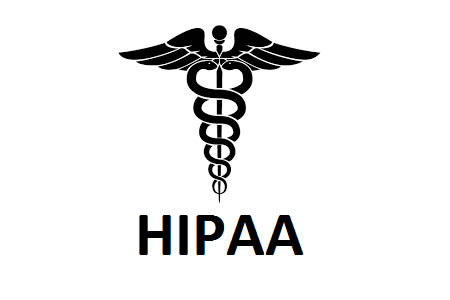In today’s digital healthcare landscape, protecting patient information is not just a regulatory requirement but a crucial component of patient trust and organizational credibility. The Health Insurance Portability and Accountability Act (HIPAA law) establishes strict standards for the privacy and security of protected health information (PHI). Healthcare providers seeking to demonstrate their commitment to data protection often pursue HIPAA certification, which validates compliance with these standards and enhances operational integrity.
Understanding HIPAA and Its Importance
The HIPAA law, enacted in 1996, sets national standards for protecting sensitive patient information. Covered entities, such as healthcare providers, health plans, and healthcare clearinghouses, as well as their business associates, must comply with HIPAA regulations. Non-compliance can result in significant fines, legal action, and reputational damage, making adherence critical for healthcare organizations.
HIPAA focuses on three primary areas:
- Privacy Rule: Governs the collection, use, and disclosure of PHI, ensuring patients’ rights over their health information.
- Security Rule: Requires administrative, physical, and technical safeguards to protect electronic PHI (ePHI) from unauthorized access or breaches.
- Breach Notification Rule: Mandates reporting of any unauthorized disclosure of PHI to affected individuals and regulatory authorities.
Healthcare providers that invest in HIPAA certification demonstrate to patients, partners, and regulators that they have implemented comprehensive data protection measures.
Benefits of HIPAA Certification
Achieving HIPAA certification offers multiple advantages for healthcare providers:
- Enhanced Trust and Credibility: Certification signals to patients and stakeholders that the organization prioritizes data security and privacy.
- Regulatory Compliance: Helps ensure adherence to HIPAA law, reducing the risk of fines and legal penalties.
- Operational Efficiency: Standardized procedures and policies streamline data handling and security practices.
- Risk Mitigation: Identifying vulnerabilities and implementing safeguards minimizes the likelihood of breaches and cyberattacks.
- Competitive Advantage: Certified providers gain a market edge by showcasing their commitment to secure healthcare practices.
Key Steps to Achieve HIPAA Certification
1. Risk Assessment
A comprehensive risk assessment is the foundation of compliance. It involves identifying potential threats to PHI, evaluating vulnerabilities, and determining the likelihood and impact of security incidents.
2. Policy and Procedure Development
Healthcare providers must establish robust policies and procedures aligned with HIPAA law. This includes privacy policies, data handling protocols, access controls, and breach response plans.
3. Employee Training and Awareness
Human error remains a significant risk in healthcare data breaches. Training staff on HIPAA regulations, secure handling of PHI, and incident reporting is essential for effective compliance.
4. Technical Safeguards
Implementing encryption, secure authentication, audit logs, and intrusion detection systems protects electronic PHI from unauthorized access, alteration, or destruction.
5. Physical and Administrative Safeguards
Physical measures, such as restricted access to server rooms and secure storage for paper records, complement administrative safeguards, including workforce management and oversight of business associates.
6. Continuous Monitoring and Auditing
Ongoing monitoring of systems, regular audits, and updates to policies ensure continued compliance with HIPAA law and maintain readiness for certification assessments.
Common Challenges in Achieving HIPAA Certification
Healthcare providers may face several obstacles when pursuing HIPAA certification, including:
- Complex IT Infrastructure: Integrating legacy systems with modern security solutions can be challenging.
- Resource Constraints: Smaller organizations may struggle to allocate sufficient budget and staff for compliance initiatives.
- Employee Compliance: Ensuring consistent adherence to policies across all staff members requires continuous training and monitoring.
- Evolving Threat Landscape: Cybersecurity threats are constantly changing, necessitating adaptive safeguards and proactive risk management.
Despite these challenges, the long-term benefits of HIPAA certification outweigh the investment, providing enhanced security, compliance, and patient trust.
Why Choose Professional HIPAA Certification Services
Partnering with experts ensures a structured, efficient, and successful certification process. Professional HIPAA certification services offer:
- Comprehensive Gap Analysis: Identify current compliance levels and areas requiring improvement.
- Customized Policy Development: Tailor policies and procedures to the organization’s size, scope, and operational needs.
- Employee Training Programs: Equip staff with the knowledge and skills to maintain HIPAA compliance.
- Audit and Assessment Support: Prepare organizations for certification assessments with structured audits and corrective actions.
- Vendor and Third-Party Management: Ensure business associates comply with HIPAA law and contractual obligations.
These services simplify the certification process, reduce risk, and ensure sustainable compliance.
Best Practices for Maintaining HIPAA Compliance Post-Certification
- Conduct regular risk assessments and update policies accordingly.
- Monitor employee adherence to privacy and security protocols.
- Maintain secure storage and access controls for all PHI.
- Implement automated tools for auditing and incident detection.
- Stay informed about updates to HIPAA law and adapt compliance programs as needed.
Ongoing commitment to these practices ensures that HIPAA certification remains valid and that patient information is consistently protected.
In Conclusion
Achieving HIPAA certification is an essential step for healthcare providers seeking to demonstrate compliance with HIPAA law and build patient trust. It validates the organization’s commitment to protecting sensitive health information while improving operational efficiency and mitigating risk.
Tsaaro provides expert HIPAA certification services tailored to healthcare organizations of all sizes. From risk assessment and policy development to employee training and continuous monitoring, Tsaaro guides providers through the entire certification process. Partnering with Tsaaro ensures that your organization not only achieves compliance but also fosters a culture of data security, accountability, and trust in the healthcare ecosystem.





Comments